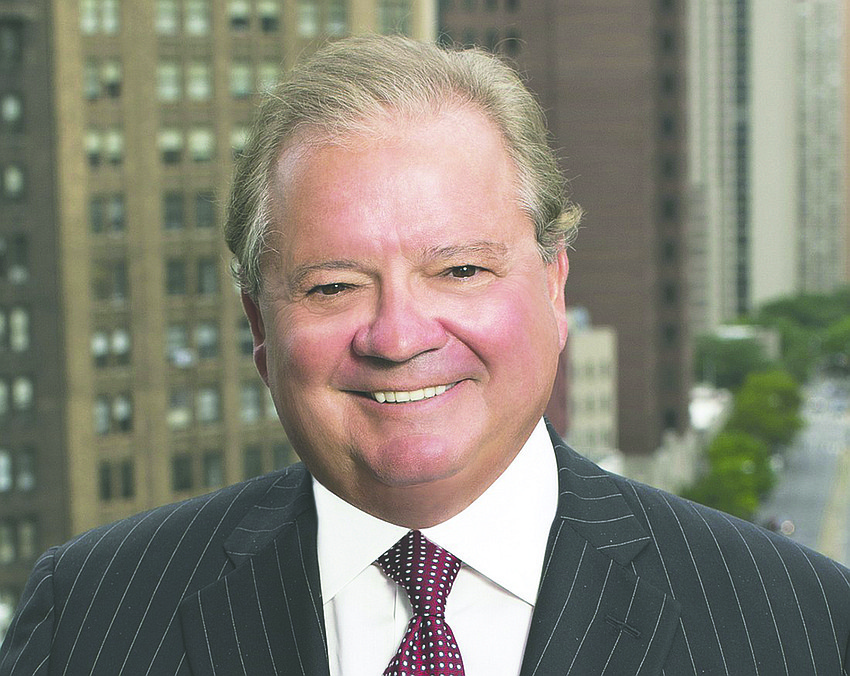 allvision - stock.adobe.com
allvision - stock.adobe.com
In 2023, every sector, including higher education, was buffeted by chaos, uncertainty, dysfunctional economic and governmental institutions, political and cultural polarization as well as disturbing threats to the well-being of people and the natural world we share.
We are living in a crucible of tumultuous events and disputes that test the limits of the institutions, laws, rules and norms that govern our daily lives, our future hopes.

Yet even the most heated controversies help to illuminate and separate right from wrong, and what is good and valuable from what should be corrected or discarded.
Lawyers will play a prominent role in determining whether society overcomes the tough challenges of our times. Their work will be critical for making progress toward equal justice, freedom, health, safety and peace.
The good news is that, far beyond relying primarily on the time-honored law school anvil and hammer of the Socratic “stand and deliver method” and the case study approach to teaching, legal educators are developing new tools for forging lawyers who will be well equipped to perform the legal work needed in the rest of the 21st century.
That is what we are doing at the Jacksonville University College of Law.
In this new year, paradoxically, the only constant will be accelerating transformational change, marked by sharp disagreements over the applicable laws, regulations and policies. In this environment, followers of the false comfort of conventional herd wisdom, unsubstantiated by facts, will be at risk.
In my opinion, the most successful educators, including those law schools preparing the next generation of lawyers, will focus on three priorities.
Value: We can no longer take for granted that higher education at the undergraduate, graduate and professional levels is considered a springboard to the American Dream.
For the first time in living memory, despite compelling evidence to the contrary, it is increasingly common for people to doubt the worth of college and university studies.
Successful educators will be able to articulate the value proposition of higher education in their institution in terms of lifelong earnings, professional accomplishments and accolades, not to mention the intangibles such as self-worth, satisfaction and the gratification of meaningful service to others.
Adaptation: The most successful educators will not only prepare students to be ready for the world as we know it when they graduate, but as important, to acquire the skills that enable them to adapt to the world as it changes, including to qualify for future careers and solve problems that do not yet exist.
Purpose: Understandably, academic faculty, staff and students are troubled by the seemingly hopelessness of many issues of our time and feel like our world is falling apart like there is no tomorrow.
It is important to remind academic communities that the world has always been full of troubles, and always will be. They have the purpose and opportunity to use what they are studying to good effect by making the world better.
In a sense, universities and colleges are the field hospitals of wounded democracies, equality, justice and suffering people. It’s important to remind and inspire academic communities about the purpose of their mission, which is to do what they can to improve the world.
An example of how these priorities can be applied is the intense focus of our law faculty over the past six months on how best to incorporate artificial intelligence and emerging technology into the curriculum.
The objectives:
1. Make students more knowledgeable about and more comfortable with the new technology that they will be using in practice. This in turn will enhance their competitiveness in the job market and their ability to keep up with the changing demands of work.
2. Determine how best to use new technology such as ChatGPT in teaching.
3. Take advantage of the existing expertise and interest across disciplines at JU and among our law faculty and staff to develop collaborations and work with other leaders in the field nationally and globally.
Pursuit of these goals will include focusing on the implications of technology for hiring faculty and staff and recruiting students.
In addition, our faculty who are most interested in AI are considering how best to insinuate it into regular doctrinal courses such as, for example, civil procedure, rather than solely offering the subject as an add-on or elective standalone course.
This holistic infusion of the AI subject matter into regular courses is consistent with our approach to teaching ethics, professionalism, practical skills, legal writing, advocacy and Bar preparation by interweaving these subjects into the established curriculum.
We also plan to convene significant programs for leaders in the field to participate, follow and generate scholarships.
By focusing on value, dynamic continuous adaption and the purpose of our academic work, we can leverage our strengths to lead critical fields such as AI and law.
This is how we pursue excellence in all that we do and strive to constantly improve our new college of law, which already is exceptional.